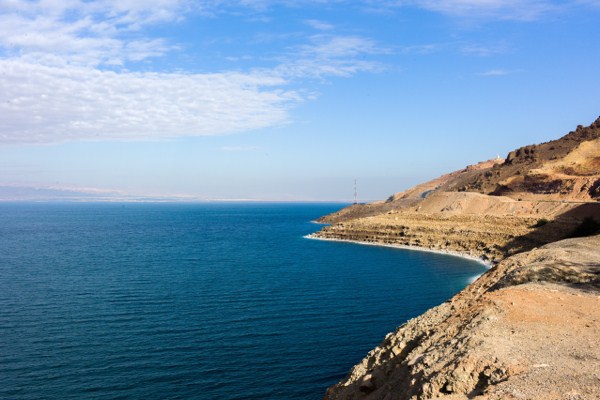In late February, after several years of negotiations, Israel and Jordan signed arguably their biggest bilateral agreement since their historic 1994 peace accord: a deal for shared management of fresh water. The landmark agreement calls for construction of a new desalination plant near Jordan’s Red Sea coast, which will distribute purified seawater to parched southern communities in both countries. Meanwhile, several hundred miles to the north, Israel will begin shipping water into Jordan, one of the most water-scarce countries in the world, via a new cross-border pipeline from the Sea of Galilee, a fresh-water lake.
Hailed as a triumph of water diplomacy in a region where neighbors rarely agree on anything, the deal is not without controversy. It includes an ambitious—and some say reckless—multistage plan to pipe water 112 miles from the Red Sea into the Dead Sea, which forms part of Israel and Jordan’s shared border and has been receding by more than 3 feet every year. Supporters say this effort will revitalize the historic body of water by improving its environmental health, boosting tourism and industry on its shores and preserving the sea for generations to come. Critics say they are dead wrong.
The pilot phase of the three-stage Red-to-Dead project will see a $300 million to $400 million pipeline transfer 100 million cubic meters of brine—or salt water—from Jordan’s new Aqaba desalination plant to an artificially enclosed section of the southern Dead Sea, where the Red and Dead sea waters will be combined and analyzed. If project planners deem the results acceptable both environmentally and economically, the pipeline project will be ramped up significantly over the next several years, eventually pumping roughly 1 billion cubic meters of Red Sea brine into the full Dead Sea basin to raise water levels and in theory secure the sea’s future.

